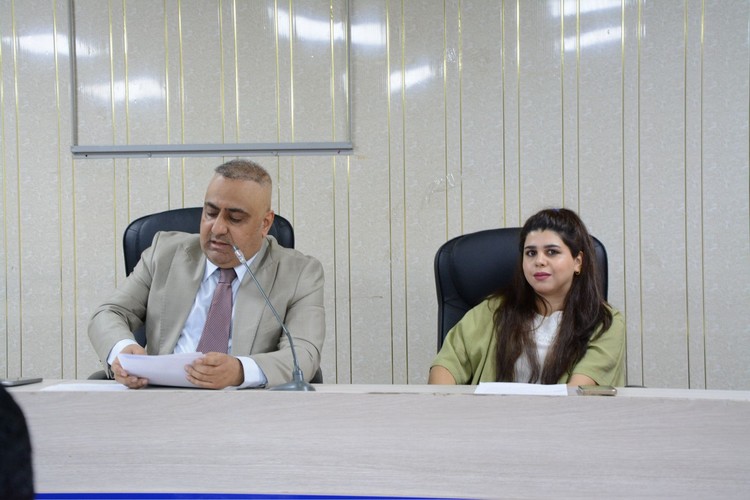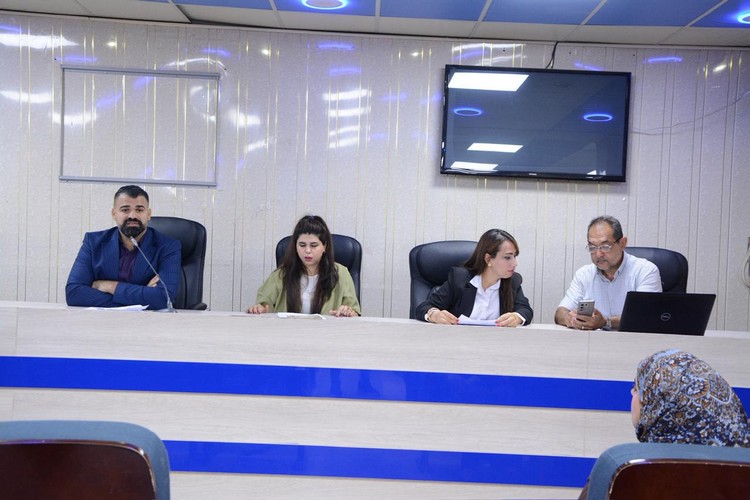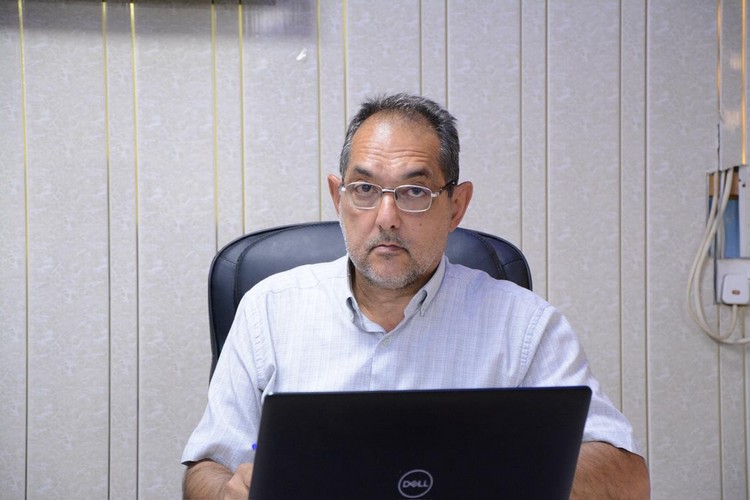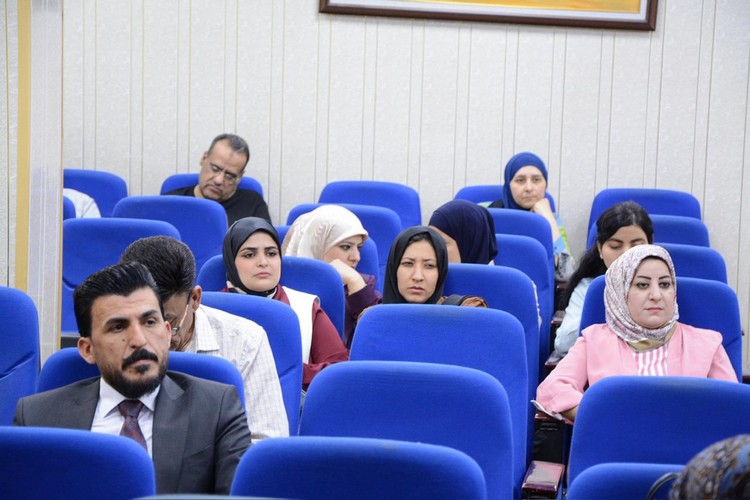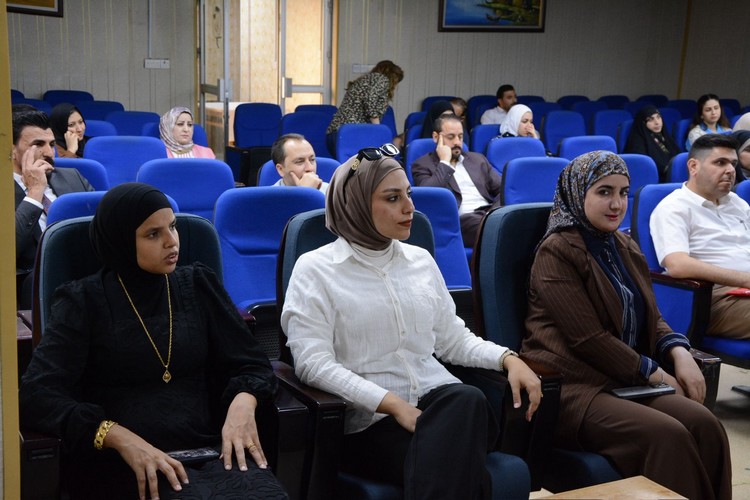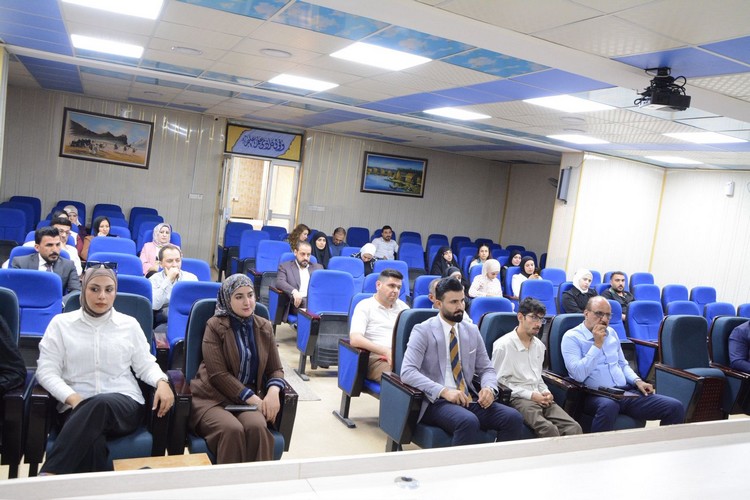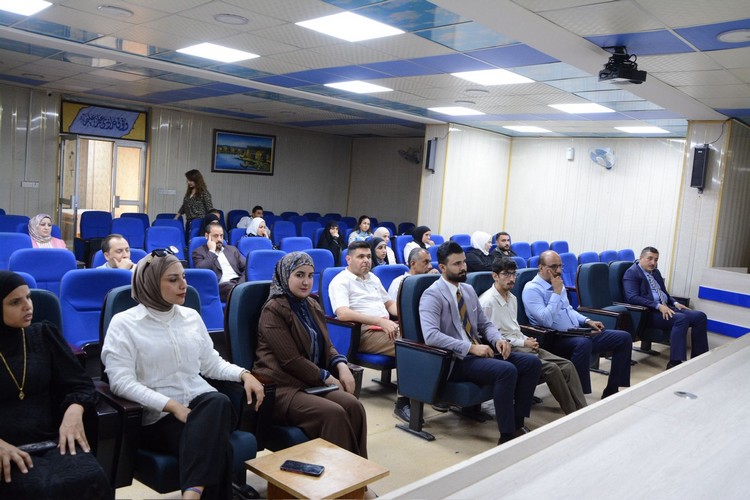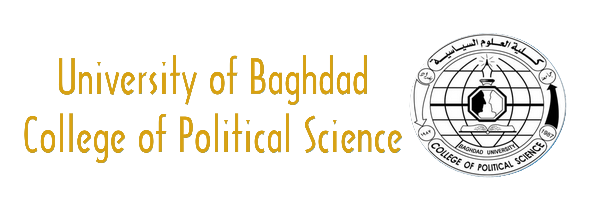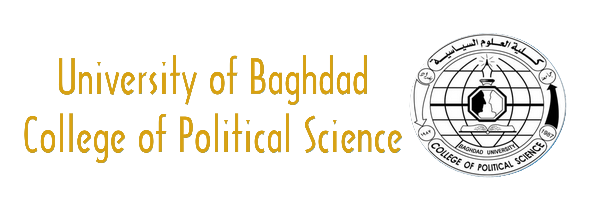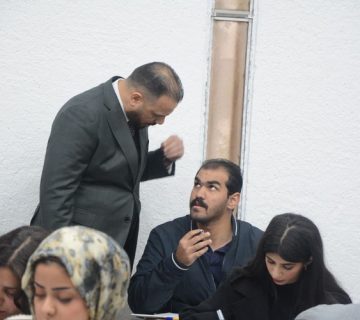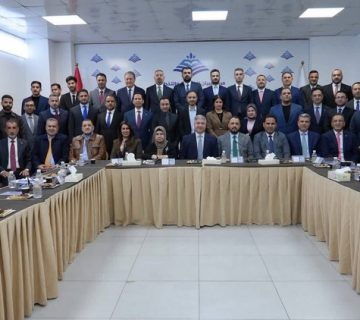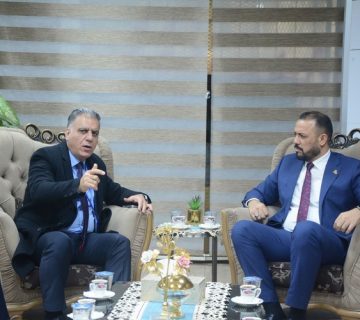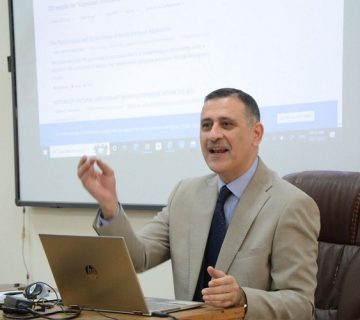The College of Political Science – University of Baghdad, through its Continuing Education Unit, organized two scientific events that addressed key topics in the field of international relations: the effectiveness of U.S. foreign policy through the model of Henry Kissinger, and the multidimensional aspects of the 34th Arab–Iraqi Summit.
Both events were held at Dr. Jihad Al-Hassani Hall, with the participation of a group of faculty members, researchers, and students.
The first event was a training workshop titled “The Effectiveness of U.S. Foreign Policy: Henry Kissinger as a Model”, presented by Asst. Prof. Dr. Ahmed Abdulwahid Abdulnabi, a lecturer at the Department of Crisis Studies, Center for Strategic and International Studies – University of Baghdad.
The speaker reviewed the pivotal role played by former U.S. Secretary of State Henry Kissinger in shaping U.S. foreign policy during the 1970s, highlighting his major intellectual and political contributions to national security, international relations, and global crises.
He also shed light on Kissinger’s key theories—such as shuttle diplomacy, the dual containment policy, and the limited nuclear war theory—which continue to be studied in research centers and political institutes around the world.
The second event was a scientific symposium titled “The Multidimensional Aspects of the 34th Arab–Iraqi Summit: A Comprehensive Analysis of Challenges and Prospects”, delivered by Asst. Lect. Dr. Jaafar Al-Sadiq Mahdi Atiya, Lect. Rasha Fadhil Jazzaa, and Lect. Ali Abdulmutalib Sadiq, from the Center for Strategic and International Studies – University of Baghdad.
The symposium discussed the structure and role of the Arab League since its establishment, and the political, economic, and security challenges it has faced. It also offered an analytical reading of the 34th Arab–Iraqi Summit, hosted by Baghdad on May 17, 2025, amid exceptional regional and international circumstances characterized by the escalating conflict in Gaza, the ongoing crises in Syria, Yemen, and Sudan, and increasing economic and security pressures on most Arab countries.
The workshop and symposium concluded with several joint recommendations, the most significant of which include:
Emphasizing the importance of studying the effectiveness of U.S. foreign policy in the Middle East and globally, and expanding the analysis of influential figures such as Henry Kissinger to better understand the dynamics of international relations.
The necessity of conducting a structural reform of the Arab League to activate its mechanisms, establish a permanent reconstruction and relief fund, and promote Arab economic integration through joint strategic projects.
Empowering civil society organizations in reconstruction efforts and broadening Arab diplomatic channels with influential international powers.
Encouraging continued study of prominent political figures and veteran policymakers as key references for understanding contemporary geopolitical contexts.
